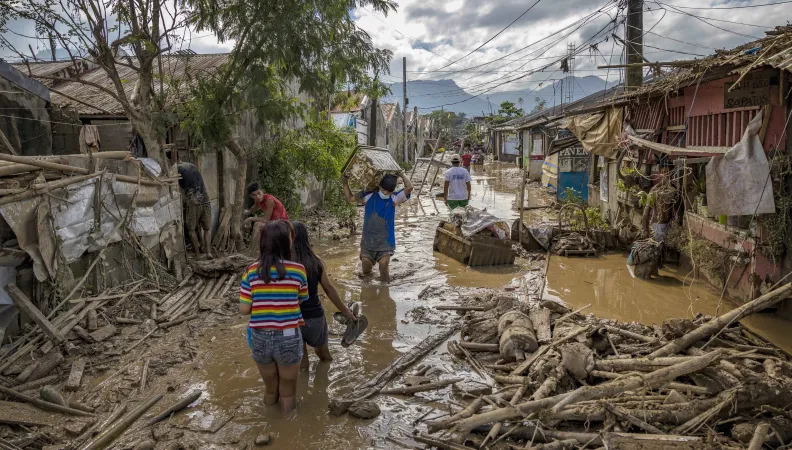Share the page
DRREALL – Disaster Risk Reduction in the Philippines
Project
Published on

-
Project start date
-
Status
Ongoing
-
Project end date
-
-
Financing amount (Euro)
-
4.3m
-
Country and region
-
Philippines, Asia and the Pacific

The DRREALL project aims to reinforce the prevention of natural disasters in the Philippines and mitigate their effects.
The Philippines: A country hard hit by the effects of climate change
Due to its geographical location, the Philippines is highly vulnerable to the effects of climate change. In recent years, the country has been affected by multiple natural disasters, including floods, tsunamis, landslides, and storm surges. Seismic and volcanic activity in the region is intense and also poses a security threat to the country. The Filipino people are highly exposed to this type of disaster and the majority of them are inadequately equipped to cope with them.
5.2 2 million people affected by typhoons in 2019
For example, in 2019, an earthquake hit the island of Mindanao, affecting nearly 720,000 people. In the same year, 5.2 million people were affected by several typhoons which crossed the country. The human and financial impacts of these disasters place a heavy burden on people and local government budgets.
To address this situation, the Government of the Philippines adopted the Climate Change Act in 2009, followed by the Philippine Disaster Risk Reduction and Management Act in 2010. They both aim to increase the country’s resilience to climate change by implementing prevention, adaptation and risk management strategies. Local governments have also been given wider powers in this field.
DRREALL project: Mitigating the economic and human effects of disasters
The objective of the DRREALL project is to mitigate the economic and human effects of these natural disasters, by assisting the country with the implementation of its disaster risk reduction and management strategy. It includes assisting with the transfer of certain powers to local government units. The aim is to build local risk planning capabilities, maximise the effectiveness of the management of the dedicated funds, and promote socially inclusive crisis response and anticipation strategies.
The programme provides for a broad range of training for local government units to enable them to effectively address the needs for natural disaster anticipation and management, as well as the needs for recovery following a disaster. For example, it will involve promoting the construction of secure evacuation centres, especially in the poorest regions.
AFD has allocated two loans to the Department of the Interior and Local Government to support natural disaster management. Several partnerships have also been established with think tanks and research institutes to promote enabling policies for disaster risk management and reduction.
Sustainable Development Goals
SDG13 - Climate action
Take urgent action to combat climate change and its impacts

In the same country
ESIWA+
Ongoing
2024 - 2027
Funders : European Union, German State, Ministry for Europe and Foreign Affairs of France
CRIMARIO II - Critical Maritime Routes in the Indian Ocean
Closed
2015 - 2025
Funders : European Union





